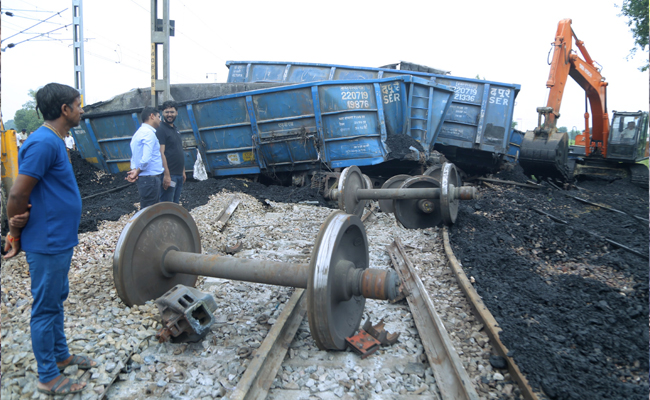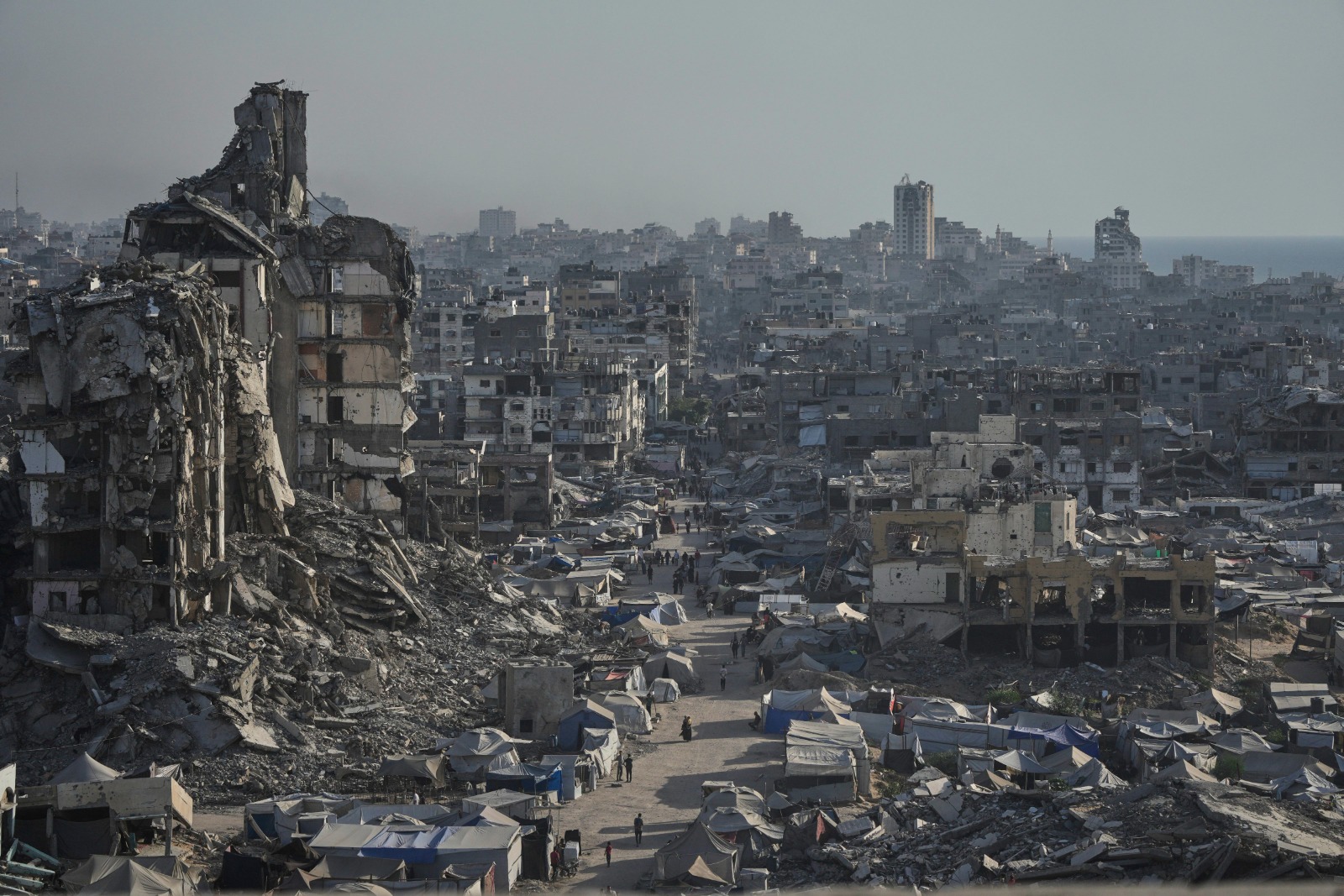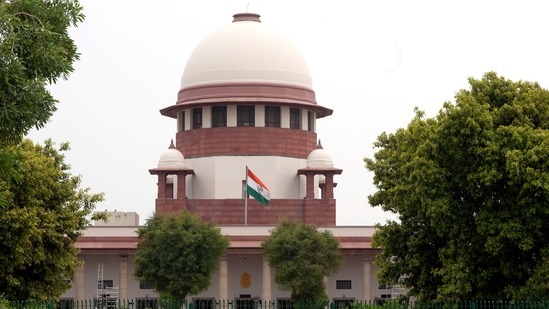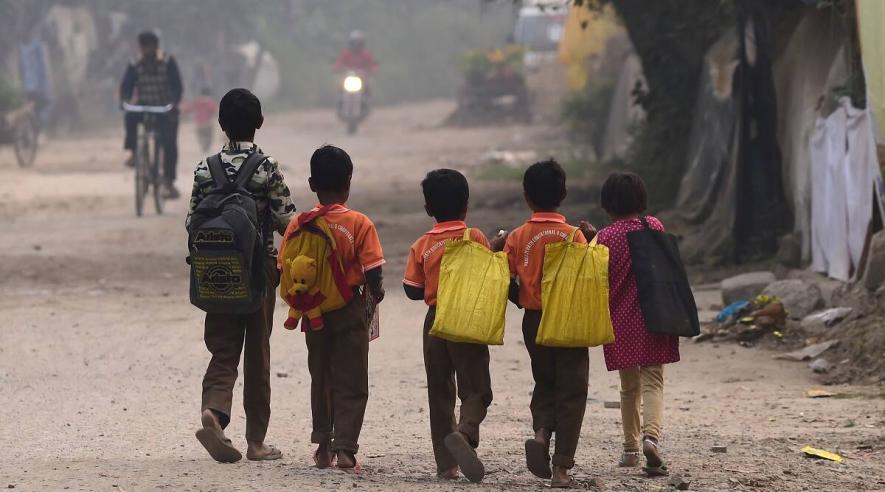Mathura (UP) (PTI): An inquiry committee will be formed to probe the derailment of 25 wagons of a freight train near Vrindavan in Mathura district, a senior official said here Thursday.
The derailment around 8 pm on Wednesday impacted services of around 30 trains on the route, with officials saying work is underway to clear the tracks so that normal operations could be resumed.
Nearly 500 workers have been deployed for the job of clearing the tracks since last night.
Divisional Railway Manager, Agra Division, Tej Prakash Agarwal on Wednesday told reporters that traffic on three railway lines was interrupted due to the derailment.
"Twenty-five wagons of the train taking coal to Suratgarh power plant (in Rajasthan) derailed after Vrindavan yard," Agarwal said, adding that no one was injured in the incident.
On Thursday morning, General Manager of North Central Railway, Upendra Chandra Joshi said, "Our priority is to clear the track first, and then we will focus on other aspects."
Joshi said the derailment, which occurred between Vrindavan Road and Ajhai stations, affected approximately 30 trains in the process.
While the exact cause of the derailment remains undetermined, officials are not ruling out any possibilities, including sabotage, he said.
"It is difficult to disclose the basic cause of derailment at this time. After the formation of the inquiry committee, all angles will be examined," he added.
Joshi said the necessary equipment, machines and ART (accident relief train), has been requisitioned from Agra, Delhi, and Moradabad to expedite the repair process.
SK Srivastava, Station Director at Mathura Junction, said down train movements are currently ongoing on the fourth line, ensuring some level of operational continuity while repairs are underway.
"Around 500 personnel are working on-site since Wednesday night to restore normal operations," he added.
Let the Truth be known. If you read VB and like VB, please be a VB Supporter and Help us deliver the Truth to one and all.
Gaza City: The director of Al-Shifa Hospital in northern Gaza, Dr. Muhammad Abu Salmiya, has issued an urgent warning regarding the spread of what he described as a “new virus” within the enclave, further straining the territory’s already devastated health system.
Dr. Abu Salmiya stated that the virus is presenting with symptoms including high fever, joint pain, runny nose, persistent cough, and prolonged diarrhea lasting more than a week. “We do not have tests to determine the cause of the virus,” he explained, noting that the outbreak is directly linked to deteriorating humanitarian conditions.
According to him, widespread malnutrition has weakened immunity levels among the population, while the absence of clean water, basic sanitation supplies, and the overcrowding of families in temporary shelters have created an environment conducive to the rapid spread of infections.
“The new virus is exacerbating the pressure on the exhausted health system,” Dr. Abu Salmiya added, highlighting that hospitals and medical facilities are struggling to cope with the surge in cases due to shortages of medicine, equipment, and trained staff.
The warning comes as the war in Gaza, described by Palestinian health authorities as a genocide, enters its 693rd day. Local reports estimate that at least 62,996 Palestinians have been killed since the beginning of Israel’s assault. Among them, 317 people are said to have died from starvation, a consequence of Israel’s blockade on the entry of humanitarian aid, including food and medical supplies.
Health experts have repeatedly cautioned that Gaza faces the risk of severe outbreaks of infectious diseases due to collapsed infrastructure, malnutrition, and the destruction of water and sanitation networks. International organizations have called for urgent medical assistance and unhindered humanitarian access to prevent further loss of life.
The emergence of this unidentified virus adds to the mounting health crisis in Gaza, where hospitals are already overwhelmed by war casualties and chronic shortages. Medical professionals warn that without immediate international intervention, the situation could spiral into a large-scale epidemic.





